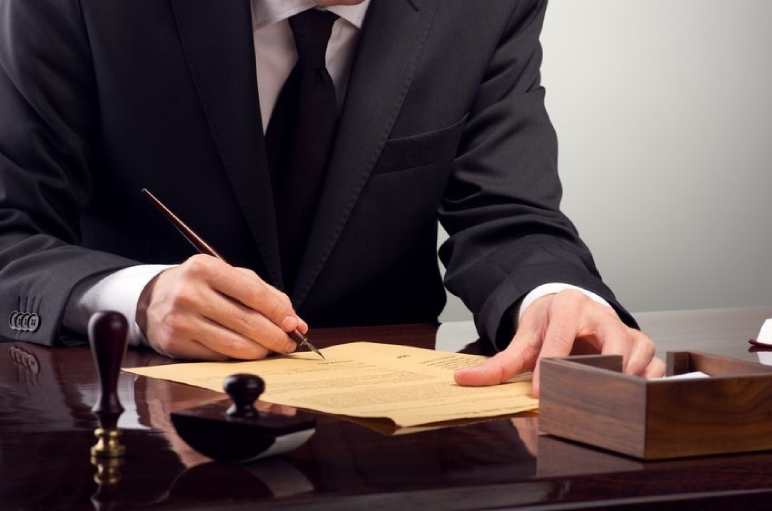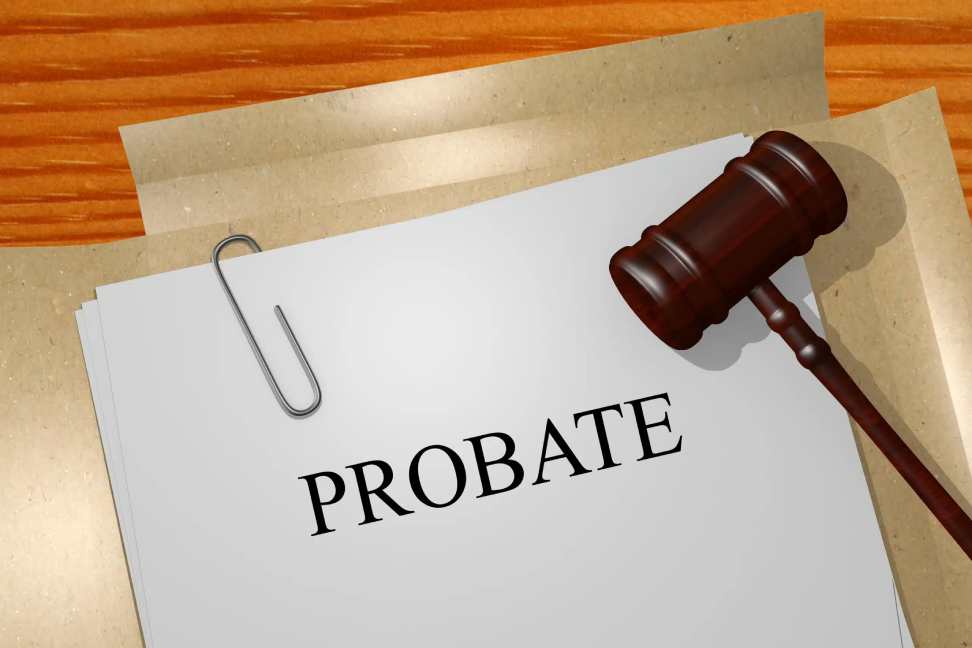Losing a loved one is painful enough. Facing the legalities that follow their passing can feel overwhelming. That’s where a probate lawyer comes in. But what exactly is a probate lawyer, and do you need one? Let’s unravel the mystery.
Think of a probate lawyer as a guide through the legal maze of settling an estate. After someone passes away, their possessions and assets, known as the estate, need to be distributed. A probate lawyer helps navigate this process, ensuring it’s done correctly and fairly.
Think of them as a translator. Legal jargon can be a foreign language, and a probate lawyer acts as your interpreter. They explain complex legal terms and procedures in plain English, making things clear and understandable.
Think of them as a shield. Probate can be riddled with challenges. Disputes between beneficiaries, tax complexities, and creditor claims can arise. A probate lawyer shields you from these storms, advocating for your rights and interests.
But do you always need a probate lawyer? That depends. If the estate is simple, with few assets and no will, you might be able to handle it yourself. However, if things are more complex, like having a will, property disagreements, or significant debt, hiring a probate lawyer is highly recommended.
Think of it as an investment in peace of mind. A probate lawyer takes the weight off your shoulders, allowing you to grieve and heal without the added stress of legalities. They save you time, money, and countless headaches in the long run.
So, when to call a probate lawyer? Here are some red flags:
- There’s a will. Wills need to be interpreted and followed through the probate process.
- There are significant assets. Real estate, investments, or valuable property require careful handling.
- There are debts or taxes. Dealing with creditors and the IRS can be tricky.
- There are family disagreements. Disputes over inheritance can get messy.
Think of a probate lawyer as your partner in navigating the complexities of probate. They offer expertise, guidance, and support, ensuring a smooth and legal transfer of the estate.
Remember, losing a loved one is hard enough. Don’t go through the probate process alone. A qualified probate lawyer can be your trusted ally, turning a confusing and stressful time into a manageable one.
So, if you’re facing the daunting task of settling an estate, don’t hesitate to seek a probate lawyer. They’ll be your legal compass, guiding you through the journey with confidence and clarity.
Remember, a probate lawyer can be the difference between a stressful ordeal and a peaceful resolution. Choose wisely, and let them navigate the legalities while you focus on healing and honoring your loved one’s memory.
What Do Probate Lawyers Do ?

So, what exactly does a probate lawyer do? In simple terms, they help ensure a smooth and legal transition of assets from the deceased to the rightful beneficiaries. This involves a range of tasks, like:
- Understanding the Will: If there’s a will, the lawyer deciphers its terms and ensures its proper execution. This includes identifying and locating assets, paying off debts, and ultimately distributing inheritances as outlined in the will.
- Handling Intestacy: If there’s no will, the lawyer guides the family through the legal process of intestacy, where state laws dictate how assets are distributed. They ensure everything is done fairly and according to the law.
- Tax Matters: Navigating estate taxes can be tricky. A probate lawyer helps minimize tax burdens and ensures compliance with all regulations.
- Conflict Resolution: If disputes arise among beneficiaries, the lawyer acts as a mediator, working towards fair and amicable resolutions.
- Court Representation: In some cases, court appearances may be necessary. Your probate lawyer will represent you in court, protecting your interests and ensuring a smooth legal process.
Think of a probate lawyer as your legal translator and advocate during this delicate time. They handle the legalese, paperwork, and deadlines, allowing you and your family to focus on grieving and healing.
Here are some signs you might need a probate lawyer:
- You’re named as the executor of a will.
- There’s no will and you’re unsure how to proceed.
- The estate is complex, with various assets or debts.
- There are disagreements among beneficiaries.
- You have questions about taxes or legal procedures.
Remember, a probate lawyer is there to help, not burden you further. Their expertise can save you time, money, and stress during this emotionally difficult time.
So, if you’re facing the loss of a loved one and the complexities of settling their estate, don’t hesitate to seek the guidance of a probate lawyer. They can be your invaluable partner in navigating life’s legal crossroads with confidence and clarity.
What Is the Role of a Probate Lawyer?

A probate lawyer is a type of lawyer who specializes in helping people settle the legal affairs of a deceased person. This can involve a variety of tasks, including:
- Identifying and locating the deceased person’s assets
- Paying the deceased person’s debts
- Filing any necessary paperwork with the probate court
- Distributing the deceased person’s remaining assets to their heirs or beneficiaries
- Representing the estate in court if necessary
Probate lawyers can be helpful for anyone who is involved in the administration of an estate, whether they are the executor of the will, a beneficiary, or simply someone who is helping out a family member or friend.
Here are some of the specific benefits of hiring a probate lawyer:
- Save time and money: The probate process can be complex and time-consuming. A probate lawyer can help you navigate the process and avoid making mistakes that could cost you time and money.
- Reduce stress: Dealing with the death of a loved one can be stressful. A probate lawyer can take some of the burden off of you by handling the legal aspects of settling the estate.
- Protect your interests: If there are any disputes about the estate, a probate lawyer can help you protect your interests.
- Get expert advice: A probate lawyer can provide you with expert advice on all aspects of estate administration.
If you are considering hiring a probate lawyer, it is important to choose someone who is experienced and knowledgeable in the law of your state. You should also make sure that you feel comfortable with the lawyer and that you trust them to handle your case with care.
How Much Do Probate Lawyers Charge?

Unfortunately, there’s no one-size-fits-all answer to how much probate lawyers charge. The cost can vary greatly depending on several factors, including:
Fee Structure:
- Hourly Rate: This is the most common, and typically ranges from $150 to $400 per hour, with experienced lawyers in major cities charging even more.
- Flat Fee: Some lawyers set a fixed fee for routine cases, often between $3,500 and $7,000.
- Percentage of Estate Value: Less common, but possible, is a fee based on the estate’s total value, usually around 3% to 7%. This can be risky for the estate, as it can lead to higher costs than expected for complex cases.
Case Complexity:
- Simple, uncontested estates with a valid will will generally cost less than complex cases with disputes, missing wills, or numerous assets.
- The number of heirs and potential conflicts can also factor into the cost.
Lawyer’s Location and Experience:
- Lawyers in major cities typically charge more than those in smaller towns.
- More experienced lawyers with specialized knowledge may command higher rates.
Additional Costs:
- Court filing fees, appraisal fees, and other miscellaneous expenses add to the overall cost.
What Questions Should You Ask a Probate Lawyer?

Asking the right questions is crucial when choosing a probate lawyer to help navigate the often complex process of settling an estate. Here are some key questions to consider:
About their experience and expertise:
- How long have you been practicing probate law?
- How many probate cases have you handled?
- Do you have experience with cases similar to mine? (Specifically mention size and complexity of the estate, any potential conflicts or disputes)
- What is your success rate in probate cases?
About their approach and communication style:
- How will you keep me informed of the progress of the case?
- Who will I be working with on your team?
- How can I best reach you when I have questions or concerns?
- What is your communication style like? (Do you prefer email, phone calls, or in-person meetings?)
About fees and costs:
- How do you bill for your services? (Flat fee, hourly rate, contingent fee)
- What are your estimated fees for my case?
- Are there any other potential costs or expenses I should be aware of?
About the specific case:
- Is probate even necessary in my case?
- What are the steps involved in the probate process?
- How long do you think it will take to settle the estate?
- What are the potential challenges we might face?
- What can I do to help the process go smoothly?
Additional questions:
- Do you have any references I can contact?
- Are you a member of any professional organizations related to probate law?
- What do you like most about practicing probate law?
Tips for asking questions:
- Come prepared with a list of your questions.
- Don’t be afraid to ask for clarification if you don’t understand something.
- Pay attention to the lawyer’s answers and how you feel about their communication style.
- Trust your gut feeling! Choose a lawyer you feel comfortable with and confident in.
Remember, every case is unique, so it’s important to tailor your questions to your specific situation. By asking the right questions, you can find a qualified and experienced probate lawyer who can help you navigate the probate process smoothly and efficiently.
Have A Look :-

